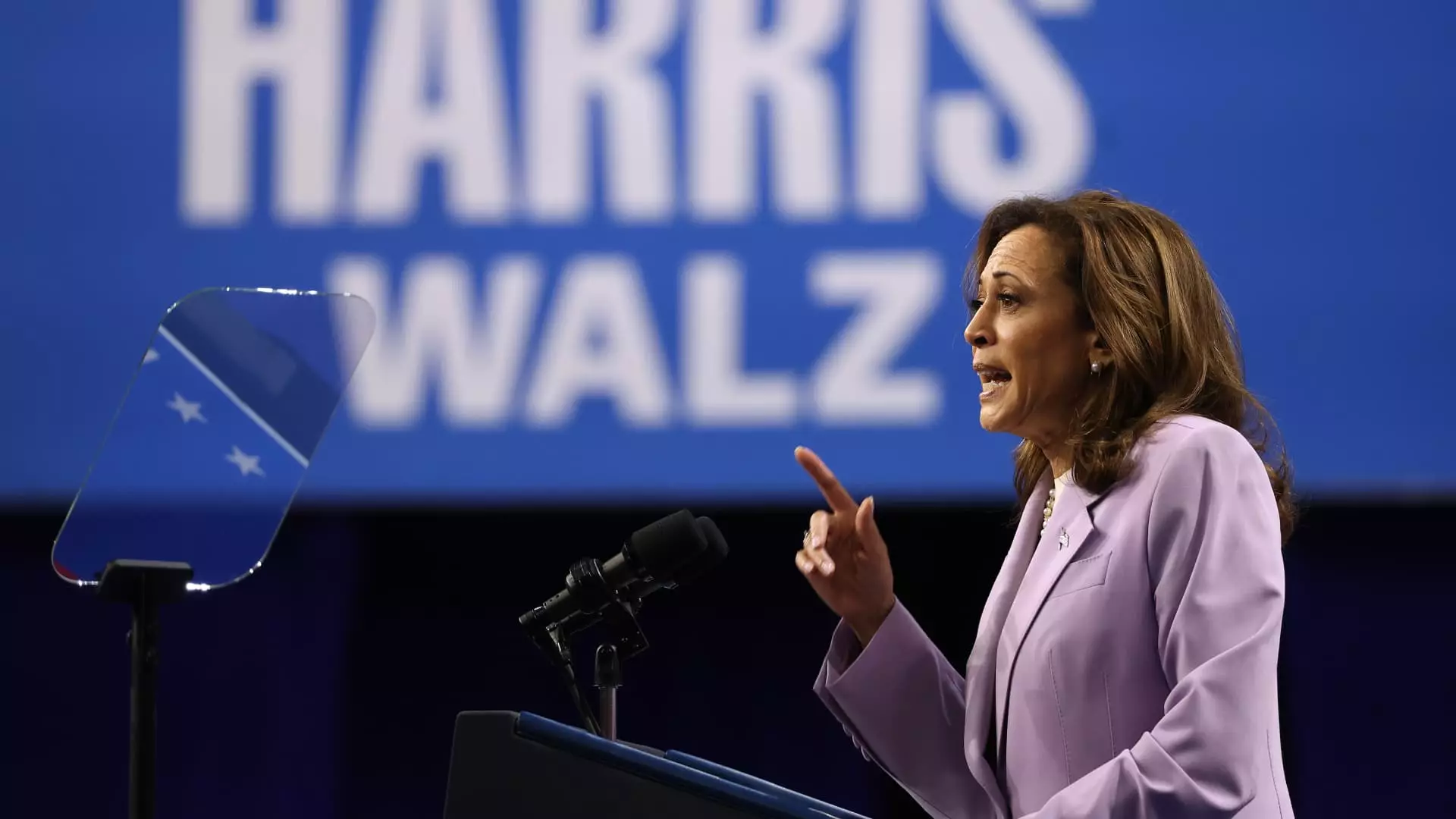Affordable housing has been a key focus in recent political discussions, with Vice President Kamala Harris outlining proposals to address the issue in her economic policy pitch. Harris emphasized the importance of making homeownership more accessible by lowering costs. One of the central aspects of her plan is the construction of 3 million new housing units over the next four years, targeting both rental and sale properties. This initiative has been applauded by housing experts for its potential to improve affordability in the housing market.
Dennis Shea, the executive director of the Bipartisan Policy Center’s J. Ronald Terwilliger Center for Housing Policy, highlighted the significance of increasing housing supply as a bipartisan solution to affordability challenges. Since the foreclosure crisis, there has been a noticeable decline in the construction of new homes, especially in the affordable housing sector. Janneke Ratcliffe, vice president of the Housing Finance Policy Center at the Urban Institute, stressed the urgent need for more affordable homes to cater to renters and first-time buyers.
To achieve the goal of 3 million new units, Harris’ housing plan includes a tax incentive for homebuilders who sell starter homes to first-time buyers. This incentive aims to promote the creation and rehabilitation of homes in distressed communities, supplementing existing policies such as the Neighborhood Homes Tax Credit. While these proposals show promise in addressing housing affordability, there are concerns regarding the feasibility and effectiveness of such initiatives.
James Tobin, CEO of the National Association of Home Builders, raised important questions about the definition of “starter homes” and the underlying costs involved in their construction. It is essential to establish a clear range of price points for starter homes, considering the varying market conditions across different regions. Factors such as labor costs, land expenses, borrowing costs, and material prices significantly impact the affordability of homes, making it challenging to meet the needs of first-time buyers.
Edward Pinto, senior fellow at the American Enterprise Institute’s Housing Center, expressed skepticism about the viability of supply-side proposals, emphasizing the difficulties in passing such initiatives compared to demand-focused strategies. Pinto cautioned against policies that may inadvertently exacerbate housing affordability issues rather than offering sustainable solutions. It is crucial for policymakers to address these concerns and ensure that housing policies are designed to support long-term affordability goals.
One of the key components of Harris’ housing plan is the $40 billion innovation fund designed to empower local governments in developing housing solutions. While the intention behind this fund is laudable, there are doubts about its effectiveness in achieving tangible outcomes. Daryl Fairweather of Redfin pointed out the challenges of federal influence over local housing decisions, highlighting the reluctance of local communities to embrace incentives for expanding housing options.
Moreover, the high cost of the innovation fund raises questions about its feasibility and bipartisan support. Dennis Shea noted that the substantial price tag attached to the fund may deter congressional approval, especially if the market conditions are not conducive to absorbing such expenses. Policymakers will need to reassess the allocation of resources and the alignment of the innovation fund with the broader goals of improving housing affordability for all segments of the population.
Harris’ proposal to provide $25,000 in down-payment assistance to first-time homebuyers who have a record of timely rent payments aims to facilitate homeownership for a broader range of individuals. This initiative builds on previous calls for targeted assistance to specific groups, such as first-generation homebuyers. However, the lack of bipartisan support for such proposals presents a significant obstacle to their successful implementation.
In addressing renters’ rights, Harris has advocated for legislative measures to curtail predatory investing practices and algorithmic manipulation of rental prices. By proposing bills like the Stop Predatory Investing Act and the Preventing the Algorithmic Facilitation of Rental Housing Cartels Act, Harris seeks to protect tenants from unfair practices and ensure a more transparent and equitable rental market. These initiatives underscore the importance of balancing the interests of renters and homeowners in the pursuit of comprehensive housing reforms.
While Harris’ affordable housing proposals show promise in addressing critical challenges in the housing market, there is a need for further refinement and stakeholder engagement to ensure their effectiveness. By focusing on increasing housing supply, defining clear policy objectives, and promoting innovation in the housing sector, policymakers can work towards creating sustainable and inclusive housing solutions for all Americans.

